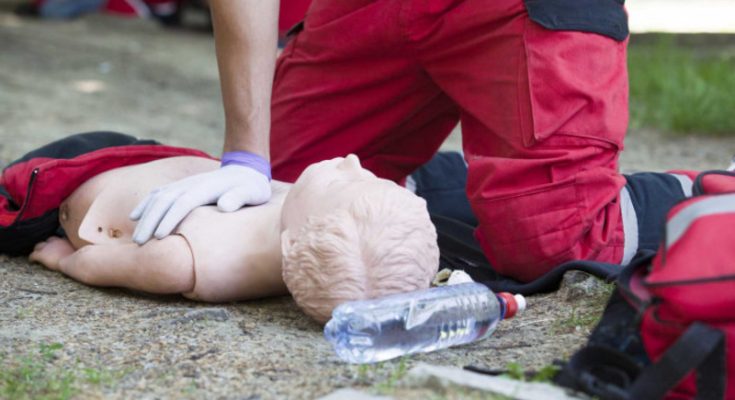#HeartAttack, #CPR, #DrapasMandal; #McMasterUniversity; #Ontario
IBNS: More than 90% of sudden cardiac arrest victims will not survive without intervention, with each minute lacking cardiopulmonary resuscitation (CPR) diminishing survival rates by 7%, said noted Indo-Canadian paediatric cardiologist Tapas Mondal.
“After a mere 15 minutes, the chances of survival are virtually nonexistent. Immediate bystander CPR stands as a pivotal lifeline, increasing the odds of survival by two to four times,” said Dr. Mondal, a professor of paediatrics at McMaster University in Ontario, Canada, on the sidelines of a transformative two-day global CPR training event that he hosted recently via Zoom.
The training was aimed at teaching CPR skills synchronously to participants spanning various corners of the world, comprising three hybrid training sessions.
Aiming to raise awareness about the critical importance of bystander chest-compression-only CPR following sudden cardiac arrest, the session was organised by the Heart and Stroke Foundation.
Worldwide, sudden cardiac arrest surpasses the combined fatalities of AIDS, breast, lung, colon, and prostate cancers.
Most significantly, out-of-hospital cardiac arrests often occur within the confines of homes, where the concept of bystander cardiopulmonary resuscitation (CPR) is notably absent, particularly in low- and middle-income countries. This stark reality underscores the urgent need for action.
The driving ethos behind this initiative is the belief that “CPR begins at home,” which calls for a collective endeavour to amplify public awareness about the indispensable nature of performing chest-compression-only CPR when someone experiences sudden cardiac arrest.
The overarching goal is to introduce bystander CPR on a global scale, utilising a blend of knowledge transfer and hands-on workshops.
With a track record of over 150 hands-on projects spanning India, Bangladesh, Pakistan, Sri Lanka, Nigeria, and China, the initiative has already made substantial strides, the doctor said.
Several open-ground mass CPR events have been successfully executed. In the spirit of expansion, the project aims to reach Uganda, Nigeria, Egypt, the Seychelles, Ghana, Honduras, Kenya, and Mongolia, he said.
An efficient strategy for scalability has been devised, leveraging established local groups for cost-effective, community-level training.
Collaboration with Heart and Stroke Canada further extends the reach, with plans for three interactive Zoom sessions conducted in a hybrid model set to cover multiple time zones, he informed.
Putting an emphasis on training the trainers is integral to enhancing the event’s overall success, he added.
(Reporting by Suman Das)





